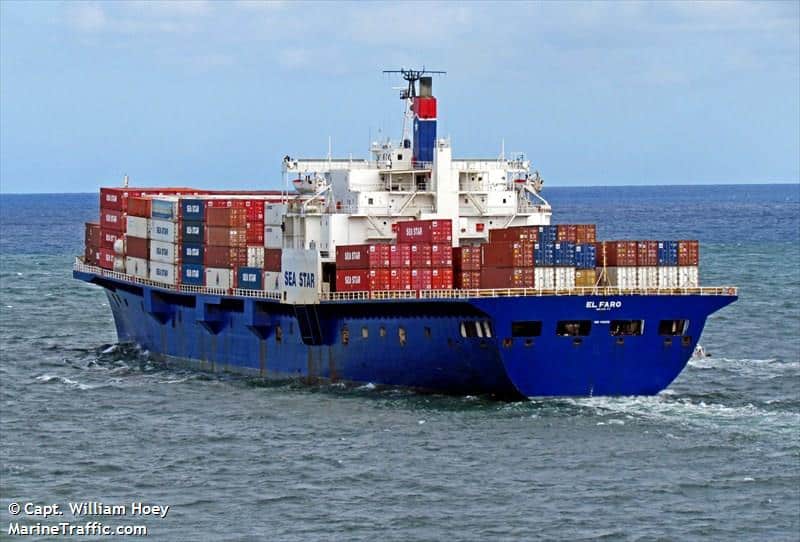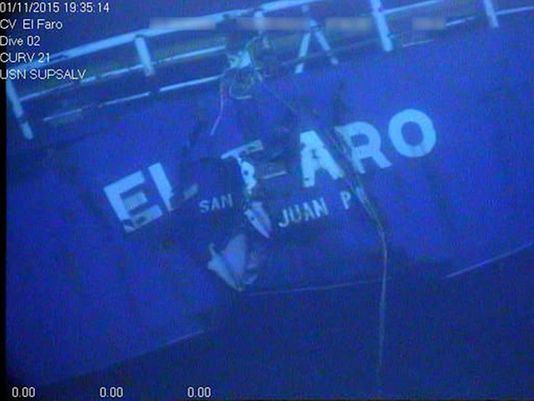

Last month Senator Mike Lee (R-UT) introduced a bill, the Open America’s Water Act of 2019, to “repeal the Jones Act and allow all qualified vessels to engage in domestic trade between U.S. ports.” The Jones Act is a 99-year-old protectionist bill that mandates that only US-owned, built, flagged, and manned ships can carry cargo between US ports and possessions.
The act costs Hawaii, Alaska, and Puerto Rico billions of dollars yearly in extra shipping expenses from the mainland; worsens the US trade deficit; and creates environmental damage, highway congestion, and risk of catastrophic fires and explosions — by shifting shipments to rail and truck that otherwise would travel more cheaply, safely, and energy-efficiently by sea.
It worsens the US deficit because the requirement that goods between US ports can only be transported in expensive Jones Act ships often makes it cheaper to purchase foreign than US goods. One example is Massachusetts’ urgent need for natural gas during the winter:
Meeting [Jones Act] conditions isn’t cheap….[O]ceangoing commercial vessels built in the United States are 3-5 times costlier than their foreign-built counterparts. And according to the U.S. government they are nearly three times more expensive to operate too….
Source: Cato
But sometimes ships aren’t available at any price because they simply don’t exist. Such is the case with liquified natural gas (LNG) carriers that transport the primary energy source relied upon by more than half of Massachusetts’ households to heat their homes. Almost unbelievably, there is not a single ship that complies with the Jones Act’s requirements. At the same time the United States has emerged as one of the world’s largest exporters of LNG, none of it can be transported by ship to New England — or anywhere else in the country. Instead every LNG carrier that arrives is from a foreign port on international voyages not subject to Jones Act restrictions.
…
As a result, Americans will continue to import LNG, sometimes from great distances, that is more expensive than the domestic supply. In 2017 Massachusetts even imported some of its LNG from Russia, which is perhaps ironic given the law is often justified on national security grounds. Most of the state’s LNG imports, however, come from Trinidad and Tobago.
Repeal of the Jones Act has been endorsed by all the major conservative and libertarian think tanks (Heritage Foundation, AEI, Manhattan Institute, Mercatus Center, and Cato), and partisan Democratic Party economists such as Paul Krugman — although not yet by the Democrats’ leading think tank, Brookings. Hawaii and Alaska’s elected representatives in Congress are also against repeal. They prefer kowtowing to local shipping interests than lowering the high cost of living of their constituents.
The argument in favor of keeping the Jones Act is that without it, the US shipping industry and merchant marine — already on life support — would disappear, leaving no domestic capability in case of war.
But it’s precisely the protected status conferred by the Jones Act that has led to that decline — as happens in most if not all cases of long-term protection of an industry. With a guaranteed monopoly, the protected industry stops making new investments and innovating, raises its prices, and continually loses international market share to foreign competitors.
A country that wastes billions each year to protect an obsolete sector that no longer accomplishes its intended mission is not enhancing national security but degrading it. It was in this manner that the Soviet Union collapsed because its entire industrial sector by being protected became obsolete.
Most of the Jones Act fleet is similarly obsolete. At an average of 30 years, it’s 10 years beyond the usual 20-year lifespan of a cargo ship. The Jones Act ship El Faro was twice that 20-year industry lifespan. It broke down, lost power, listed, and sank in a 2015 Caribbean hurricane. Although the captain was faulted for navigation decisions, the decrepit shape of the ship was a contributing factor in the loss of all the sailors’ lives. US mariners should not be sailing in Jones Act death traps.
In World War I, hundreds of thousands American troops had to be conveyed to Europe by merchant ship. This was the motivation for the 1920 Jones Act — to preserve that military transport capability. But now, troops don’t travel to combat by ship; they are flown by plane. And in the 1991 Gulf War, the US merchant fleet was so shrunken that most supplies went to the Middle East on merchant ships flying foreign flags, but this didn’t prevent the expedition from being a military success.
If Congress hasn’t got the courage to scrap the Jones Act altogether, it could at least save billions of dollars by allowing US shipping companies to buy the cheaper, better ships built from the shipyards of our allies, South Korea and Japan. With better, cheaper ships, US sailors’ lives won’t be at risk and US shipping companies may even become competitive with their foreign counterparts.
We have opened up our air, rail, and road transportation to foreign builders and transportation companies, why not the shipping industry?
Senator Lee’s Open America’s Water Act of 2019 merits bipartisan support. Its prospects would be considerably brightened if President Trump were to see the act as further unlocking US economic potential by scrapping burdensome regulations. So far, however, he seems more inclined to favor LNG shipment by rail. This is provoking charges of “bomb trains” from opponents. But why not drop the Jones Act requirement for LNG shipments? That would diffuse the “bomb train” issue for the highly populated Atlantic and Pacific Coast states and Mississippi ports.
Cato’s comprehensive brief for repeal of the Jones Act is available here.

Leave a Reply